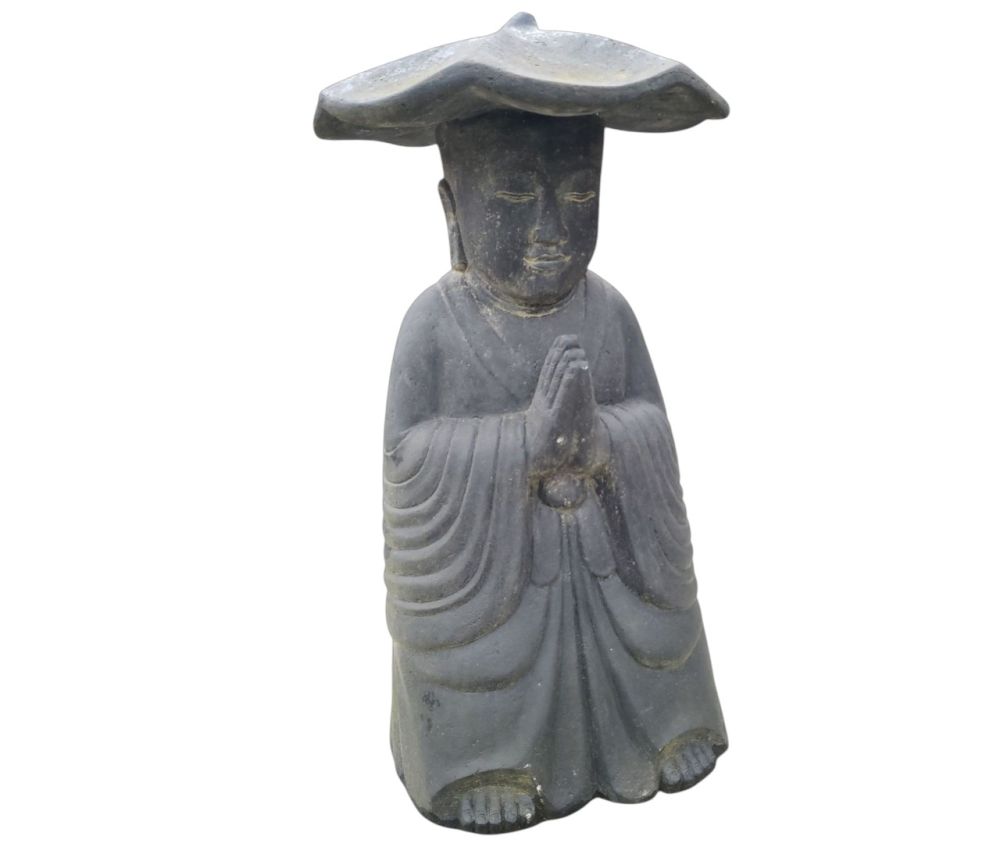We use cookies to make your experience better.
TimmersGems has a new website, existing customers also need to register again.
Japanese Zen monk, crafted in lava stone.
Statue handmade from the surroundings of Malang & Yogyakarta, at the foot of the 'Merapi' volcano and the Kraton palace on Java, Indonesia
Availability:
In stock
SKU
121857
Zen or chán is a form of Buddhism that strongly emphasizes dhyana and introspection. This leads to insight into one's true nature, thereby opening the path to a liberated way of living. Chán is one of the larger Chinese schools in Mahayana Buddhism. In Japan and the West, the school is known by the name Zen (Japanese 禅). According to tradition, Zen originated in India when the Buddha held up a flower and Kasyapa smiled. With this, he indicated that he had understood the essence of the dharma, which is not expressed in words. With this, the teaching was passed on to Kasyapa, the second patriarch of Zen. In this legend, the strong influence of Taoism on the formation of Zen is ignored. Zen is strongly influenced by the meditation-focused 'teaching without words' of Laozi and Zhuang Zi. Thus, Thomas Hoover clearly indicates in the book 'Masters of Zen' that Taoism and Buddhism are the two roots of Ch'an, the later Zen: The early Chinese meditation masters, dhyana in Sanskrit and Ch'an in Chinese, adopted the Taoist tradition of intuition, and the later Zen masters often used Taoist wisdom. Zen Buddhism, as it first developed in China as Ch'an and later in Japan as Zen, was strongly influenced by Confucianism and especially by Taoism. Ray Grigg argues in his book 'The Tao of Zen' (1994, 1999) that what is known as traditional Chinese-Japanese Zen Buddhism was actually almost entirely based on Chinese Taoist philosophy, adapted with elements of Mahayana Buddhism.
| Dimensions | 115x65x65cm |
|---|---|
| Country of Manufacture | Indonesia |












